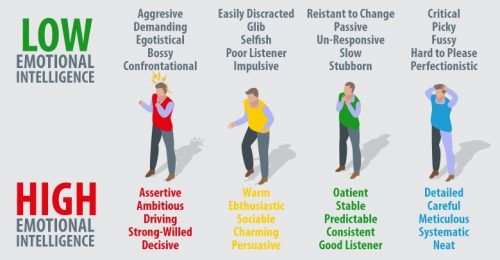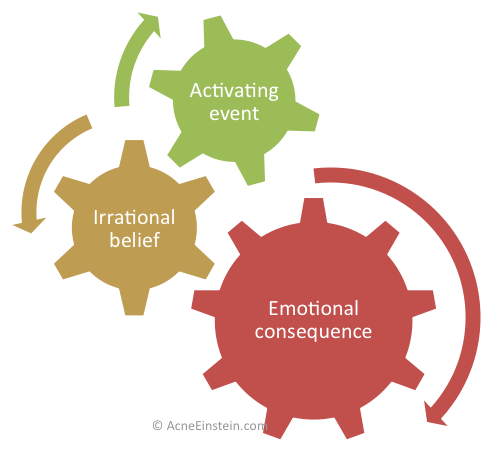Depression and anxiety are two of the worst mental health conditions that you may suffer from. Not only does it make you feel uncomfortable and uninterested in life, but it also makes you feel unworthy, empty, and unloved. During severe loneliness and void, you often need to end the suffering. That explains why you sometimes think about something that you shouldn’t.

Yes, the thought of self-harm is taboo, and society doesn’t accept the fact that an individual like you would constantly talk about it in the open. Understandably, this can make you feel slightly intimidated and uninterested in sharing your experiences. There’s this fear of judgment and rejection. The thought of people questioning your inability to handle these negative emotions can also play a potential risk for self-destruction.
Self-harm is a viable coping mechanism for severe emotional distress and feelings of helplessness. It might relieve emotional anguish, diverge from daily life, or help you communicate feelings you find difficult to articulate. You most likely feel better afterward, at least temporarily. However, the unpleasant emotions resurface, and you are compelled to harm yourself once more.
Any intentional harm to oneself is considered self-harm. These include beating oneself or slamming your head, inserting items into your flesh, burning or scorching yourself, and slashing or severely tearing your skin. Rarely, you might ingest harmful materials or unsuitable objects or purposefully stop wounds from healing. Less evident methods of injuring or endangering oneself, such as careless driving, binge drinking, abusing drugs, or engaging in risky sexual behavior, can also be considered forms of self-harm.
Why Do You Commit Self-Harm?
The reasons why individuals engage in self-harm are not predetermined. For each person, it truly might be very different. Some people associate self-harm with certain experiences and use it as a coping mechanism for things that are either occurring now or in the past. For others, the causes can be more elusive and difficult to understand.
You might not always understand why you injured yourself. Some individual’s self-harm behaviors are specifically connected to past trauma. Self-harm is sometimes described as an activity that seeks attention. Comments such as this can make you feel isolated and condemned. As many people don’t disclose their self-harm, it can be not very pleasant to have your actions misinterpreted.
But if you self-harm to draw attention to yourself, keep in mind that it’s acceptable to seek validation and to have your difficulties recognized and addressed seriously. Also, you should receive sympathy from individuals in your immediate vicinity, including medical experts.
Knowing the cycles of self-harm will help you identify what triggers your want to self-harm and identify when it is about to happen. Remember that it helps to think back on what happened after, even if you are helpless to fight the temptation to self harmed yourself. You’ll be able to comprehend things more clearly the next time you experience comparable emotions. Try analyzing what you’ve noticed based on it, and here’s how to accomplish it.

Recognize Triggers And Learn How To Manage Them
There are numerous justifications for considering or engaging in self-harm. Nobody knew why it gets habitual at times. However, studies reveal that mental and emotional health issues are connected to a few of the reasons behind this conduct. Among them is your incapacity to deal with emotions such as anger, remorse, nothingness, despair, and self-loathing. It also concerns the need to punish oneself, feel in control, or absolve guilt. Self-harm is sometimes done as a coping mechanism for intense feelings or challenging situations in life or just as a way to feel alive rather than numb.
Regardless of the urges of your self-harm, it’s critical to understand that you can get treatment if you are interested in quitting. You don’t have to harm yourself to find other coping mechanisms with all that’s happening inside of you. Once you know the conditions and triggers, you may take steps to control and overcome them. To begin, try diverting your attention. Try pastimes like reading and listening to music to enjoy some alone time rather than exerting too much effort and energy on hurting yourself all the time. These all offer focus and diversion, which can increase their level of awareness.
You could need to practice emotional awareness if you’re finding it difficult to identify the emotions that set off your cutting impulse or confused with the ones you struggle with. Knowing how and why you are feeling is a sign of emotional awareness. It’s the capacity to recognize, communicate, and comprehend the relationship between your emotions and behavior in an instant. Though our bodies provide useful knowledge through our feelings, emotions do not always translate into self-harming or cutting behaviors.
Communicate In Whatever Way You Feel Most Comfortable
Confiding in someone else is an initial step towards receiving assistance if you’ve decided to stop cutting or self-harm. It can be frightening to open up about something you have been trying so diligently to conceal, but it can also be an immense relief when you finally let go of the burden and discuss what you’re struggling or dealing with. Consider initiating the conversation via an email, text, or letter if you’re too apprehensive to speak in person—although it’s crucial to continue a face-to-face discussion later. Feel free to withhold information that you are not comfortable talking about and often hurt you. It’s not required that you reveal your wounds to them or respond to any inquiries that make you uncomfortable.
Opening up can be tough for you, but it can also be tough for the individual you tell—especially if that someone is a close friend, family member, counselor, teacher, or religious leader. There are situations when you might not like how someone responds. Remember that feelings of shock, rage, and terror are expressions of care for you. Searching for the best person or individuals you share it with might be helpful. The more knowledgeable they are about self-harm, the more equipped they will be to help you.
It might be challenging to decide whom to trust with such sensitive details. Select a companion who will not engage in gossip or attempt to manage your healing process. Consider someone in your life gives you a sense of acceptance and encouragement. However, you are not required to select a close friend or relative. Starting with someone you respect—a teacher, church leader, or psychologist, for example—who has some additional perspective on the circumstance and is unlikely to perceive it challenging to be impartial may sometimes be the easiest course of action.

Focus On Your Feelings
Managing self-harm or self injury can elicit strong emotions and be quite distressing. Don’t get discouraged if the crisis worsens for a brief period. Once you realize your feelings’ importance, you can get past it. Long-standing detrimental behaviors are difficult to break, particularly if you are numb to the psychological and mental suffering that self-harm causes. But things will start to get better if you cope and overcome these initial obstacles so they won’t initiate a suicide attempt.
In some complex situations, making selections based more on emotions than facts may result in superior choices. Consider your feelings as well as your thoughts while making a decision. Your feelings have a lot of power. You can interact with people, flourish, and survive with their assistance. Additionally, they can serve as a guide for your actions, motivations, and decisions. They can also urge you to handle challenging circumstances and events and develop sensible solutions. By concentrating on your emotions, you can better recognize how you can manage them rather than allowing them to take control over you.
It may seem scary to you to consider being aware of your feelings instead of numbing them or letting them out by self-harm. You might worry that the agony will consume you or that it will never go away. However, if you allow them to, feelings can change swiftly. Feelings dissipate quickly and are replaced by other emotions if you never try to battle, criticize, or beat yourself up over them. The feeling only lasts as long as you give it your whole attention.
Find New Coping Techniques
Self-harm is your coping mechanism for uncomfortable emotions and challenging circumstances. You need to have coping mechanisms in place if you’re going to stop so you can react appropriately when you feel like harming yourself. You can doodle, paint, or sketch on a large sheet of paper. In addition, you can compose poems or songs to communicate your emotions, keep a notebook to record your sentiments, tear up any bad feelings you write down, listen to music, and internalize your ideas.
It’s critical to concentrate on self-care in addition to self-harm management. Try taking a hot bath or shower to help you relax and stay calm if you’re feeling agitated. Get a dog or cat to pet or snuggle with if you’re lucky enough to have an animal companion. If you need to lie down and enjoy the time alone, you can cover yourself in a warm blanket or indulge yourself with a relaxing massage on your neck, hands, and feet. You can run, dance, hop rope, or strike a punching bag as an intense exercise. If all else fails and you require more coping mechanisms, look for self-help websites, chat rooms, or message boards online.
Insight
Keep in mind that self harm urges don’t happen in a space. It is a real thing. It’s an external manifestation of internal suffering that frequently stems from early life experiences. If your self-harming behaviors are serious and you cannot manage them, you must get professional help. You might think about speaking with a therapist if you would like the assistance and support of a qualified expert in helping you break the self-harming habit. In addition to helping you identify the underlying causes of your self-harm, a therapist may assist you in creating new coping mechanisms and ways to quit self-harming.





























